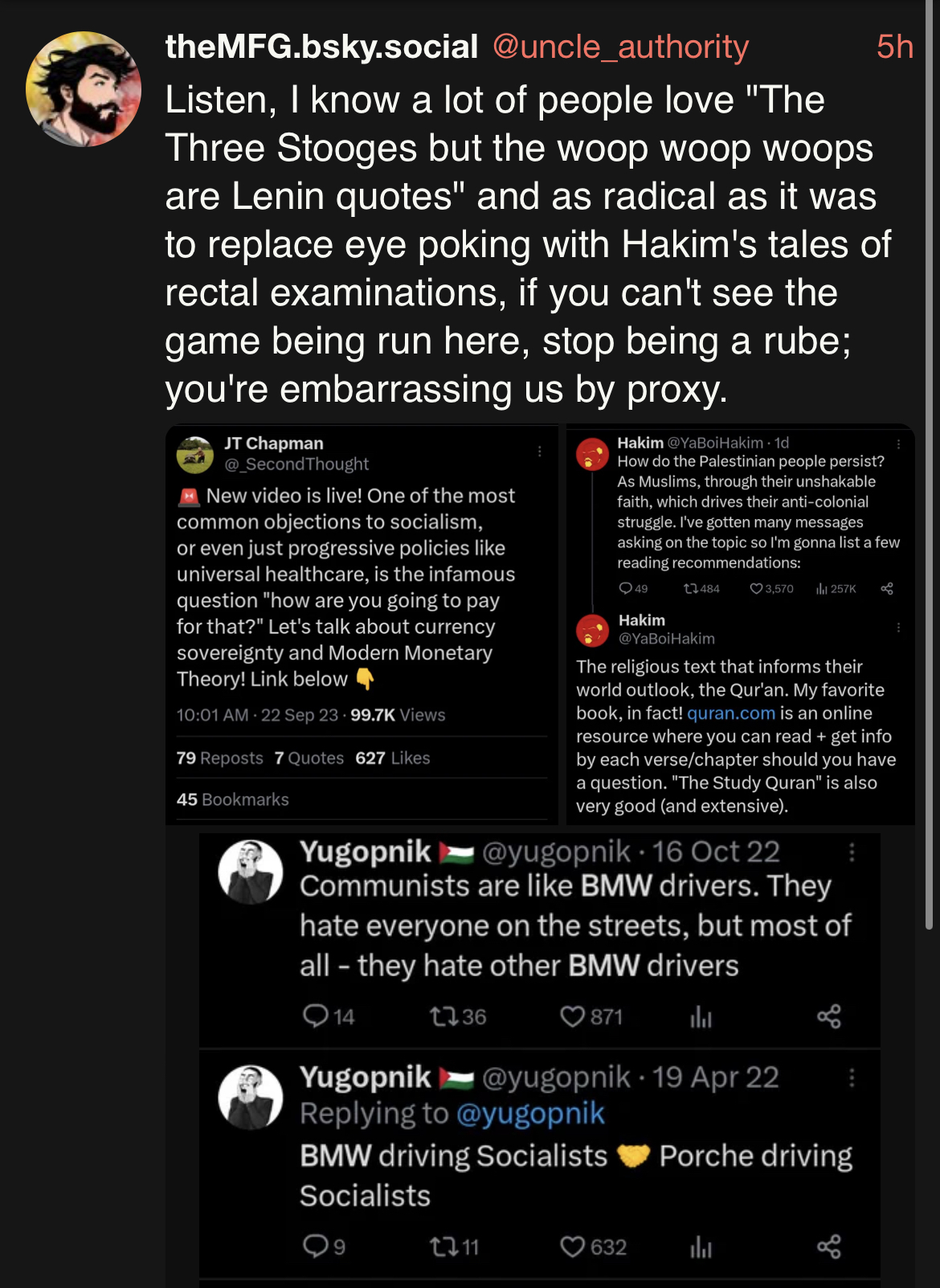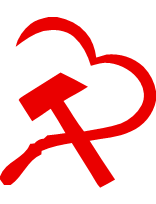the_dunk_tank
It's the dunk tank.
This is where you come to post big-brained hot takes by chuds, libs, or even fellow leftists, and tear them to itty-bitty pieces with precision dunkstrikes.
Rule 1: All posts must include links to the subject matter, and no identifying information should be redacted.
Rule 2: If your source is a reactionary website, please use archive.is instead of linking directly.
Rule 3: No sectarianism.
Rule 4: TERF/SWERFs Not Welcome
Rule 5: No ableism of any kind (that includes stuff like libt*rd)
Rule 6: Do not post fellow hexbears.
Rule 7: Do not individually target other instances' admins or moderators.
Rule 8: The subject of a post cannot be low hanging fruit, that is comments/posts made by a private person that have low amount of upvotes/likes/views. Comments/Posts made on other instances that are accessible from hexbear are an exception to this. Posts that do not meet this requirement can be posted to [email protected]
Rule 9: if you post ironic rage bait im going to make a personal visit to your house to make sure you never make this mistake again
view the rest of the comments


This are my thoughts.
(1) religion can be used as a tool for our cause temporarily pre-revolution and early socialist development, but ultimately it has to be left behind because it is not compatible with the dialectical materialism outlook. Also for religion to work in our cause we need to adapt it, a great example is the liberation theology synthesis developed by latin american priests.
(2) is simply not the reality, in developed nations the trend is that newer generations are less religious than the last one. The transition to an atheist society is, just like everything in nature, dialectical. Religions will slowly wither away to give place to materialism.
We are mostly in agreement here. Yes, I 100% agree that liberation theology and other grassroots religious movements that incorporate dialectical materialism has to be incorporated at some level, superseding the bourgeoise strains of religions in totality. My username's namesake is named after the guy who is credited with black liberation theology after all. No disagreement here.
But my argument is that we can't look at capitalist countries to tell us what will happen in communist countries. Its the wrong dataset. We need to look at folks in AES countries to determine how materialism and religion have interacted post-revolution. China's Christian population has grown significantly in the last two decades. North Korea has had presbyterian members of the upper cabinet, even having a Christian political working group at one point. Vietnam's folk religion continues to grow, and over half of Cubans are religious. The theory that religion will eventually disappear post-revolution simply hasn't happened and, in fact, many people have embraced religion post-revolution.
Lets remember that the conditions of these AES countries are still relatively bad, it is understandable that religion is still popular. It is still a fundamental contradiction that has to be resolved.
China's conditions are not bad, and their dialectic has already taken reality into consideration as it seeks to solve this contradiction. Read "The Basic Viewpoint and Policy on the Religious Question during Our Country's Socialist Period" released in 1982.
This seems fascinating, do you know a source where I can learn more about this? Everything I've found about NK's relationship with religion is filled with "you get executed if you have a Bible"-style propaganda.
Sure. Kim Il Sung grew up Presbyterian, his maternal grandfather was a Presbyterian minister, his mom was a deacon and lifelong Presbyterian, and his family especially his mom worshiped at a presbyterian church in DPRK. Several members of the dprk cabinet (or whatever it's called) were Methodist or presbyterian ministers. As long as they were anti-imperial and supported the dprk, there was no issue. There was a Presbyterian seminary in Pyongyang until 1938 that resumed training in the 1970s though I don't think it's specifically Presbyterian any more, but it's still open and training ministers within DPRK. Kang Ryang-uk was an incredibly important figure in the early DPRK. He was the vice chair and chair of the KSDP, the 2nd & 7th Vice President, and secretary and vice president of the People's Assembly. He was a Presbyterian minister and maternal uncle of Kim Il Sung and studied theology at the Pyongyang Seminary. Kang also helped found the Korean Christian Federation which continues to this day.
You can read more here (best bits at the end): https://sci-hub.se/https://doi.org/10.1093/jcs/48.3.659
Thanks!